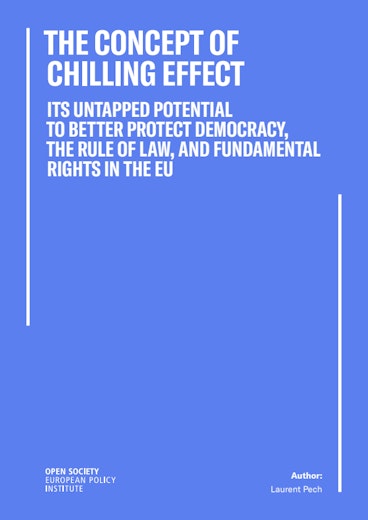This publication from the Open Society European Policy Institute, the Brussels-based policy and advocacy branch of the Open Society Foundations network, and authored by Professor Laurent Pech, examines whether it is possible to use the chilling effect to promote and protect democracy, rule of law, and fundamental rights.
In its negative form, the chilling effect is used by some governments to create a climate of self-censorship that deters democratic actors such as journalists, advocates and judges from speaking out.
To stop autocratic-minded authorities from achieving their goal of inspiring self-censorship among democratic actors, this report recommends systemically integrating the concept of chilling effect into the EU’s infringement framework of analysis. This will establish a foundation to better allow the EU to protect freedom of association, judicial independence, and media freedom.
Read more
Resilience in Moldova
Q&A: Moldova’s Path to a European Future

Moldova has endured the Kremlin’s aggression because it has chosen to leave Russia's sphere of influence and supports Ukraine. The impact of the war on daily life—and why the nation is determined to join the EU.
Rethinking the EU
In an Age of Crisis, an Opportunity to Remake the EU

From climate change to rising authoritarianism, Europe is facing a range of crises that threaten the way we live. The EU must seize the opportunity to reshape how it works and rethink what role it plays in a changing world.
Corporate Responsibility
Q&A: Why (Some) Investors Want More Regulation

As the EU works on rules to protect worker rights and the planet from corporate harm, Open Society’s Jon Jacoby spoke to Anita Dorett, of the Investor Alliance for Human Rights, about how investors are pushing for change.
